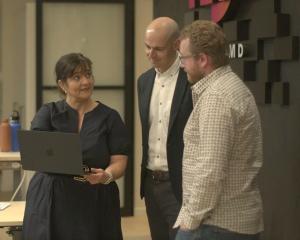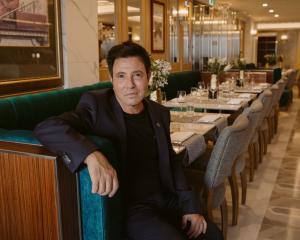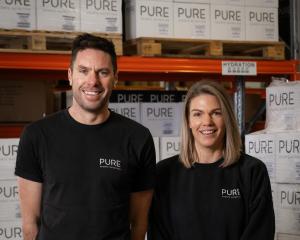Roger Belton wants New Zealand to think differently about a certain type of seaweed.
His business, Southern Clams, has been harvesting Undaria pinnatifida — in Japanese, "wakame" — from Otago Harbour since getting a permit in 2016.
But the business is restricted to taking the seaweed, also known as "undaria", from artificial surfaces such as ropes, buoys and wharves despite it being widespread in Otago and Southland.
"Now, there’s virtually no harbours in the country that don’t have it," Mr Belton said of the exotic species, which was introduced to this country about 35 years ago.
"All the attempts to eradicate it have been resoundingly unsuccessful. The policy is now around control."
That is significant for Southern Clams, which argues it has started turning the problem into a product.
And Mr Belton reckons he has a better means of controlling the "weed".

Harvesting involves cutting off the reproductive organ, known as the sporophyte, and taking it as well as the blade (the long leafy parts).
The holdfast — the part that clings to whatever surface the seaweed is hanging off — is left.
"The reason for that and the reason why that’s effective as a control means is because basically [undaria] is an annual ... so it will not regrow from the holdfast.
"And you’ve removed the reproductive body, so you’ve helped manage the problem."
Harvesting happens between the end of winter and the beginning of summer — usually all the salvageable product decomposes over summer.
The business pulled in nearly five tonnes of the seaweed last year, Southern Clams representative Miao Zhang said.
Mr Belton described the foray into seaweed as being at a research and development stage, despite the company having two customers in New Zealand that process the seaweed into food and health products.
Those customers wanted more than Southern Clams had been able to get them, and he was frustrated harvesting was restricted to artificial surfaces, Mr Belton said.
"That is very unfortunate because this so-called problem is propagating throughout the coast and those areas we cannot remove it from because our permit has got a condition on it."
The Ministry for Primary Industries says it only allows undaria farming from selected heavily infested areas.
An MPI spokesman said undaria remained an "unwanted organism" under the Biosecurity Act.
"The rules around harvesting or farming it came about after extensive consultation and they are there to stop the potential risk of it to spread further.
"These include prohibiting undaria from being harvested from organic surfaces."
In 2012, the MPI opened up Wellington, Marlborough and Banks Peninsula for undaria farming.












